O rápido desenvolvimento da agricultura de gado e aves produz muitos excrementos e esgoto. Os elementos nocivos dessas incrustações são altos demais para serem processados pela maneira tradicional de retorno. Para esta situação, Nossa empresa desenvolveu a linha de produção de fertilizantes orgânicos que usam a tecnologia de desodorização asséptica de líquido sólido de alta eficiência como o núcleo, e todo o processo de equipamento de produção da seguinte maneira:
1.Matéria-prima Pré-processamento: Materiais orgânicos, como resíduos de animais, resíduos de colheita, lodo, lama de filtro, O bolo de açúcar é coletado e pré-processado. Isso pode envolver trituração, esmagando, ou secagem para facilitar o manuseio e fermentação subsequentes.
2.Fermentação: Os materiais orgânicos pré-processados sofrem fermentação para decompor matéria orgânica e convertê-la em compostos orgânicos estáveis. Esse processo é normalmente realizado em tanques de fermentação ou torneadores de composto sob condições controladas de temperatura, umidade, e aeração.
3.Esmagando e mistura: Após fermentação, Os materiais orgânicos podem sofrer um processamento adicional, como esmagamento e mistura, para obter tamanho uniforme de partícula e misturar diferentes materiais para obter a composição desejada de nutrientes.
4.Granulação: Os materiais orgânicos mistos são então alimentados em uma máquina de granulação para formar grânulos de tamanho e forma uniformes. A granulação ajuda a melhorar o manuseio, armazenar, e aplicação de fertilizantes orgânicos e garante liberação controlada de nutrientes.
5.Secagem: Os grânulos recém -formados podem conter excesso de umidade, que precisa ser reduzido para melhorar sua estabilidade e vida útil. Os grânulos geralmente são secos em secadores de tambor rotativos ou outros equipamentos de secagem até atingirem o teor de umidade desejado.
6.Resfriamento: Depois de secar, Os grânulos são resfriados até a temperatura ambiente para impedir que eles cagam ou se juntam durante o armazenamento e transporte. Equipamentos de resfriamento, como refrigeradores de tambor rotativo ou refrigeradores de cama fluidizados, são comumente usados para esse fim.
7.Triagem e classificação: Os grânulos resfriados são rastreados para remover partículas de tamanho grande ou subdimensionado e garantir a uniformidade do produto. A classificação também pode ser realizada para separar grânulos em diferentes frações de tamanho para aplicações específicas.
8.Embalagem e armazenamento: A etapa final na linha de produção de fertilizantes orgânicos envolve embalar os grânulos em sacos, Sacos, ou outros contêineres para distribuição e venda. A embalagem adequada ajuda a manter a qualidade do produto e prolongar a vida útil. Os fertilizantes embalados são então armazenados em um armazém ou enviados diretamente para os clientes.
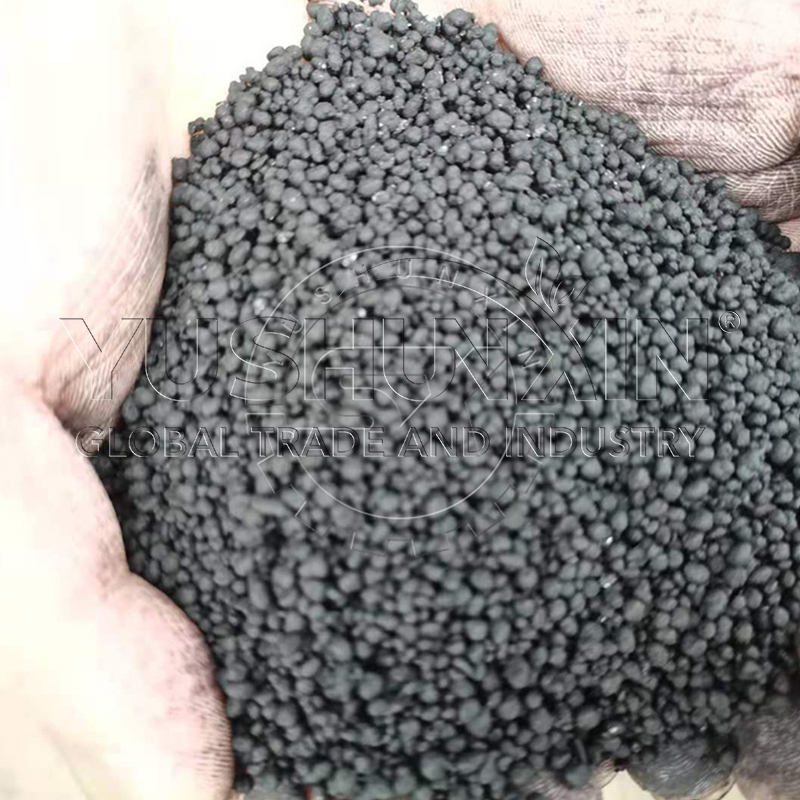
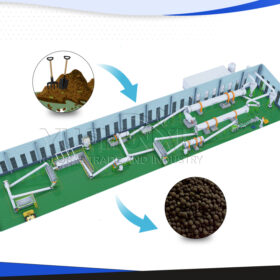
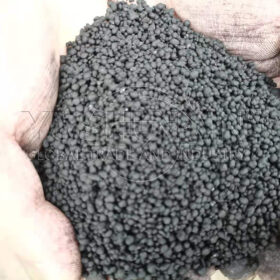
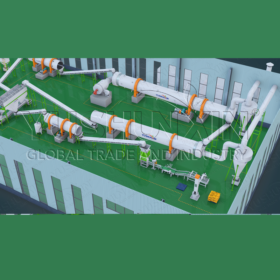
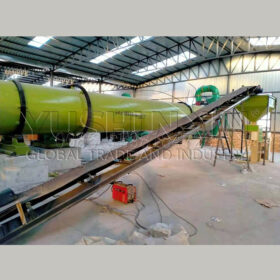
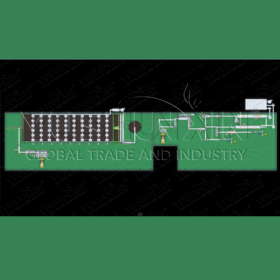
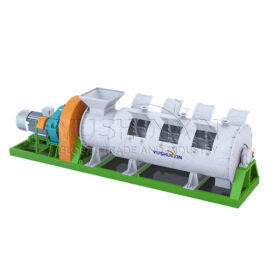
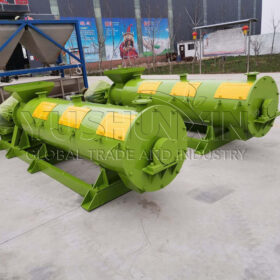
Porco estrume outro desperdício orgânico
vídeo. informações técnicas. preço
lodo da estação de tratamento de águas residuais
Fertilizante
Estou interessado e muito apreciado isso do Allah
Estrume de frango
Estou interessado na máquina de produção de biofertilizador. Por favor, encaminhe a atualização sobre o custo e a entrega para a Nigéria
OLÁ:
Eu sou Willy Cornejo de Boliva -Santa Cruz, gostaria de entrar em contato com sua empresa para que você possa visitar sua empresa. No mês de outubro
Gracias
Isso muito louvável e eu gostaria de saber mais, Possivelmente seja treinado na técnica de processamento.
Muito interessante e quanto esta planta instalou e em operação.
Mais detalhes e preço
Máquina de esterco Mouton
Máquina de estrume de porco
Esterco de vaca
Grânulo e tampa com húmico
Desperdício orgânico em geral: estrume de porco, esterco de vaca, desperdício de manga, resíduos de bananas.
Incluindo frete para Cartagena Colômbia
Agroinsumos Bionativa SAS
Fazenda de laticínios 5 toneladas por horas
Tipo de produto que você oferece
estrume de frango, esterco de vaca, 🐑 estrume
1 ou 5 toneladas por hora
frango, Vaca de porco 5 toneladas por hora
Equipamento de eletricidade necessária
Soluções integradas & Consultoria de desenvolvimento
Oi isso é rafael,Quer detalhes e preço
A linha de fertilizantes orgânicos visa construir horas extras na saúde do solo
5 TO20T
5 a 20tones por hecter de composto é aplicado
Uréia como fertilizante composto
Meny Tipos de matérias -primas. Mas a maioria é o desperdício de animais de ovelha 5 toneladas por hora
é trabalho por fule ou eleicricidade
esterco de vaca, estrume de frango e esterco de ovelha
Secador de esterco de frango e ovelha
frango e cavidades
Estrume de frango , estrume de porco , vaca estrume e outros produtos orgânicos
CAW estrume 1 Hora do tom
estou muito interessado